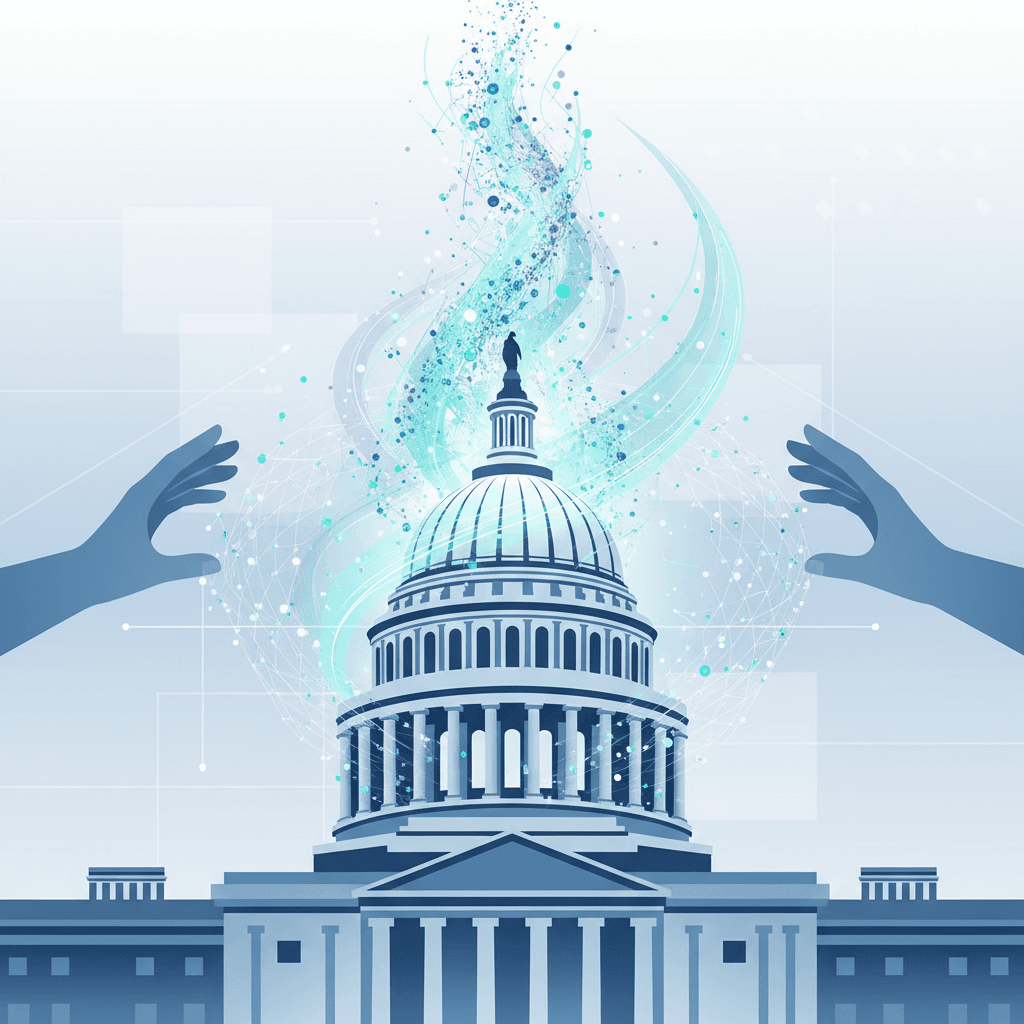US House Reverses Ban, Deploys Microsoft Copilot for Lawmakers
From banned to bipartisan: Congress cautiously integrates AI, balancing modernization with critical data security for daily operations.
September 19, 2025

In a significant stride towards modernizing its operations, the U.S. House of Representatives has initiated a pilot program to integrate Microsoft's Copilot, a generative artificial intelligence assistant, into the daily workflows of lawmakers and their staff. The move, announced at the annual bipartisan Congressional Hackathon, signals a calculated embrace of a technology that was, until recently, banned within the chamber due to security concerns. This controlled experiment, involving up to 6,000 one-year licenses, represents a pivotal moment in the U.S. government's cautious but determined push to harness the power of AI, while navigating the inherent risks of data security and privacy. The program underscores a significant policy reversal and highlights the growing pressure on public institutions to adopt technologies that are rapidly reshaping the private sector.
The decision to launch the pilot program was unveiled in a show of bipartisan unity by House Speaker Mike Johnson and Minority Leader Hakeem Jeffries, who have previously collaborated on a bipartisan AI working group.[1] This collaborative approach suggests a shared recognition of AI's potential to enhance legislative efficiency and effectiveness. The program aims to provide a "sizable portion of staff" in each office with access to Microsoft 365 Copilot, a version of the AI tool that is integrated with widely used applications like Outlook and OneDrive.[2][3] This integration is intended to streamline a variety of tasks, from drafting documents and summarizing lengthy reports to managing emails and analyzing data, ultimately allowing staff to better serve their constituents.[2][4][5] The announcement at the Congressional Hackathon—an event designed to bring together lawmakers, technologists, and civil society to brainstorm technological solutions for the legislative branch—contextualizes the pilot as part of a broader, ongoing effort to innovate and modernize congressional operations.[6][7]
A central pillar of this new initiative is the emphasis on enhanced security, a direct response to the initial reservations that led to the ban of the commercial version of Copilot. The House's Chief Administrative Officer (CAO), Catherine Szpindor, whose office previously deemed the application a risk due to the potential for leaking House data to non-approved cloud services, is now overseeing the pilot.[8][9][10][11] The version of Copilot being deployed in this trial comes with "heightened legal and data protections," a crucial condition for its adoption.[1][2] While the precise technical specifications of these safeguards have not been publicly detailed, Microsoft has been developing a government-specific version of its AI tools designed to meet the stringent security and compliance requirements of federal agencies.[12][9] This specialized version is expected to operate within a secure government cloud environment, ensuring that sensitive legislative data is not used to train the underlying AI models and is protected from unauthorized access.[13] The phased rollout, which began with testing by technical staff in June before expanding to leadership offices and other early adopters, further illustrates a deliberate and cautious implementation strategy.[1][2]
The implications of this pilot program extend far beyond the halls of Congress, serving as a bellwether for AI adoption across the public sector and a significant milestone for the AI industry. For Microsoft, securing this high-profile pilot in the U.S. legislative branch is a major strategic victory, potentially paving the way for wider contracts across federal, state, and local governments.[14] The House's concurrent review of other AI platforms, including offerings from companies like Google and Anthropic, indicates a competitive landscape where vendors are increasingly tailoring their products for the specific security and compliance needs of government clients.[1][15] The success or failure of this pilot will likely influence how other governmental bodies approach the procurement and integration of generative AI. It also provides a real-world case study on balancing the promise of AI-driven productivity gains with the paramount need for data security, ethical oversight, and responsible implementation in a democratic institution.
In conclusion, the U.S. House of Representatives' pilot program with Microsoft's Copilot marks a new chapter in the intersection of technology and governance. By reversing a previous ban and embracing a leading AI assistant within a controlled and security-focused framework, the House is positioning itself as both a user and a regulator on the cutting edge of technological innovation. The program's emphasis on bipartisan support and enhanced data protection reflects a pragmatic approach to leveraging AI's potential to modernize the legislative process. As thousands of congressional staffers begin to explore the capabilities of this powerful new tool, the lessons learned from this pilot will undoubtedly shape the future of AI in government, influencing everything from constituent services and policy drafting to the broader regulatory landscape for the artificial intelligence industry.